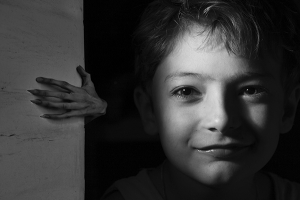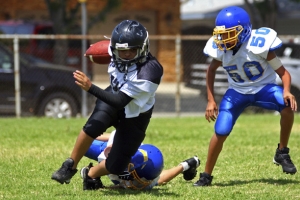
Three weeks remained in the school year. Sam’s parents assumed he’d enjoy these activity-packed days. Class trips, end-of-year parties and field day—what was there not to like? Everyone appeared happy; everyone appeared jubilant. Sam wasn’t. When the words, “The last day of school,” were mentioned, Sam’s eyes would well up, his bottom lip quivered. His parents realized he was mourning school’s end. They stopped talking about it in front of Sam, referring to it privately as LDOS (Last Day of School).
Sam’s feelings aren’t uncommon. Younger children may express these thoughts or act out. They wonder what’s wrong with them. Why are they sad when everyone else is happy? For older children this can be a bittersweet time accompanied by feelings of nostalgia and anxiety. They look forward to summer, but are concerned because they won’t be seeing their friends as easily or regularly. Some are going to experience teacher separation anxiety. These children worry that next year’s teacher won’t be as nice. School was like family to them—safe and secure. Summer may sound empty and boring or filled with new challenges like camp, which they’re not certain they’re going to like. It’s not “cool” to talk about these feelings so they don’t. Instead they try to blend in with the crowd, pushing these thoughts away.
Some children have delayed reactions to the end of school. They merrily participate in all activities and can’t wait for summer. Reality sets in after schools out. This is when they may exhibit signs of mild depression.
What about teachers? Aren’t they glad to see the backside of many of their students? Don’t they yearn for endless summer days as well? The answer may surprise you. After the final good-byes are said, the teacher returns to her empty classroom. It looks as empty as she feels. Why? Strong bonds have been formed with her class and their families. The end of school is just that—an ending.
“Even those kids who were a challenge every day cause me tears, knowing how hard I’ve worked for them,” says Gail, a seasoned and well-loved first grade teacher.
The last days of school could be described as a mild form of grieving. What can parents do to help?
- If you sense anxiety building, plan an activity for just the two of you. When the first wave of heat arrives during those last few weeks, and it usually does, take your child swimming or out for ice cream to get a taste of summer fun.
- Listen closely to what your kids are saying. Eavesdrop on conversations with their peers. Watch for any signs of sadness. Share your own experiences and memories by telling them how you’re going to miss school, too, or how you felt when you were their age. Always be available to talk.
- Don’t try to make your child feel better by insisting camp be a continuation of school. It could be compared to losing a beloved pet one day and getting a new one the next. Camp is not a replacement for school.
- Your children are accustomed to having every minute of the day structured. Once school is over, allow your child a bit of downtime with few scheduled activities and play dates. Learning to be content, alone, is a life skill.
- Suggest emailing your child’s teacher a note, a picture or postcard from vacation.
- Wait until it’s time to turn the calendar page before talking about next year. The phrase, “Now that you’re going into ____ grade,” will make your child begin to look forward rather than behind. Once the class lists/teacher assignments are given, arrange play dates with new classmates. Ignore the rumor mill; emphasize only the positive things about your child’s new teacher.
- When school starts, encourage your child to visit her “old” teacher. These visits may continue for a while. They may not. Let these visits be between the teacher and your child.
Sam’s now a sophomore in high school. His mother reports he’s still a hard-working achiever and fine student. Although he’s too old to admit it, she suspects he still dreads the last day of school. The difference is, now he knows how to handle it.
Polly Tafrate is a freelance writer and former teacher.
For more articles select the "Next" button below.



















